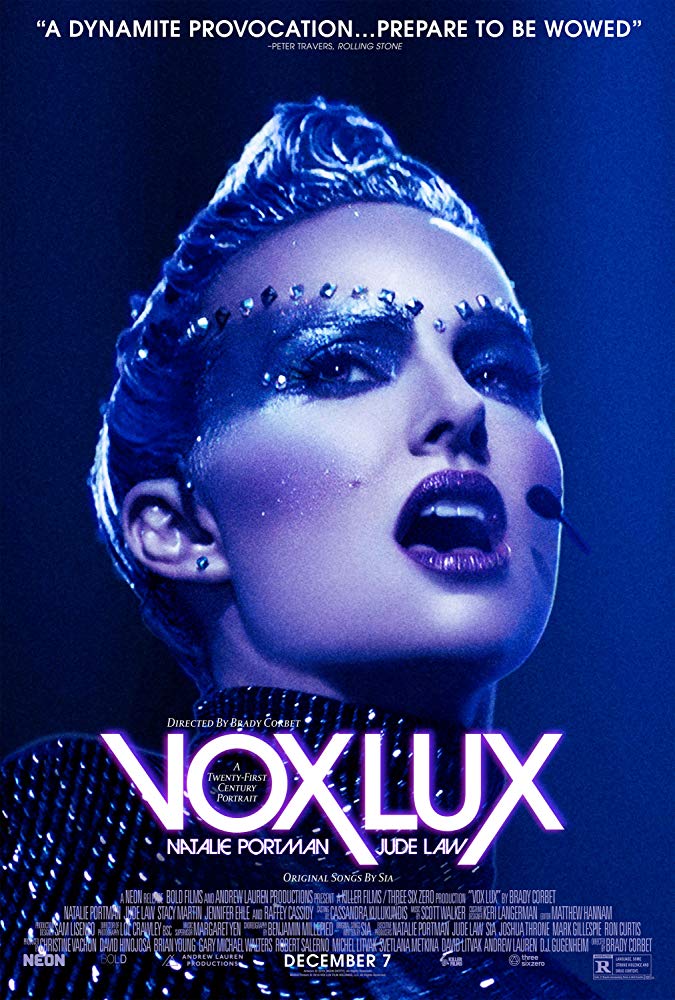
Black Swan will always be one of my favorite Darren Aronofsky works. The cinematography and pacing made the film very engaging, and Mila Kunis put on the performance of a lifetime. It was nearly universally loved, even by audiences. The score was grand, the editing was solid, and it existed in a time before audiences were forced to reconcile the director’s blandly asinine statements about Mother! with their own opinions on the rest of his body of work. Aronofsky was incapable of shutting the fuck up and allowing his audience to draw their own conclusions, being narcissistic enough to explain his own film in the most reductive and uninteresting ways possible. For example, this quote:
“The structure of the film was the Bible, using that as a way of discussing how humans have lived here on Earth. . . . I sort of wanted to tell the story of Mother Nature from her point of view.”

A host of other Aronofsky quotes brought us some of the lamest self-deconstruction I’ve ever witnessed. The nature of the film Mother! and its incredibly dishonest marketing have really taken a toll on public opinion around his artistic merit, and while I still defend his work, I refuse to defend his reputation as a pretentious dick who wakes up every morning in awe that J-Law once slept with him. To summarize that: Public opinion of Darren Aronofsky? Not so great right now.
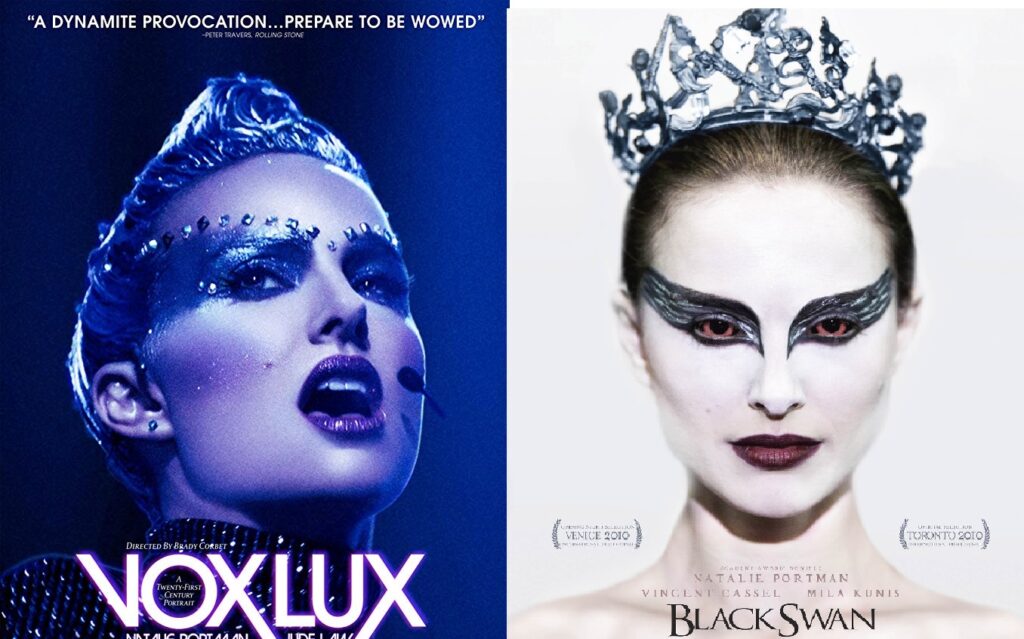
The moment I saw that poster, I was ready to dismiss this as derivative garbage. Thankfully, I took the time to look at some of the individuals involved in the making of this film, and when I did, the long road to its availability became yet another tedious six-month wait that was totally worth it.
I know I have a tendency to over-explain a film’s context, but that context is important when approaching a movie like Vox Lux. This is a film that will inevitably suffer because of both high and low expectations, depending on your familiarity and enjoyment of the work of those involved in its creation.
First and foremost, try to erase that poster from your mind. Forget that Black Swan ever existed. Forget that I haven’t mentioned Natalie Portman’s performance in Black Swan, because I felt she was overshadowed by Mila Kunis.
Now that those nasty thoughts have been purged, and our souls have been cleansed by the bliss of ignorance, let’s look at why Bradey Corbet is amazing.

Corbet is about as removed from the director clichés perpetuated by individuals like Aronofsky as one can be. His approach to film has always been subtle, and he’s generally been the quietest man in the room. In 2015, he directed and co-wrote The Childhood of a Leader, a film that may have been a little too subtle for its own good, and Vox Lux corrects some of the obvious faults in his first film.
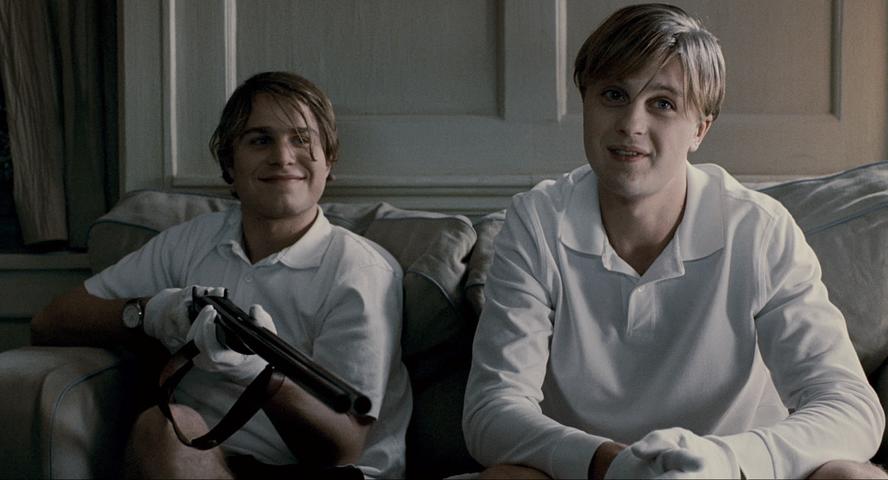
Until his directorial debut, Corbet had always been known as an actor. My first exposure to his career was through Michael Haneke’s 2007 remake of his own Austrian film, Funny Games. While Michael Pitt absolutely dominates as a fourth-wall-breaking sadist, Corbet sits silently in the background for much of the film, with the exception of the pair’s first interaction with the family they’re about to victimize. His child-like performance perfectly complements Pitt’s over-the-top rantings, and his presence as a giggly passive bystander in the film is part of what makes the pair so menacing.
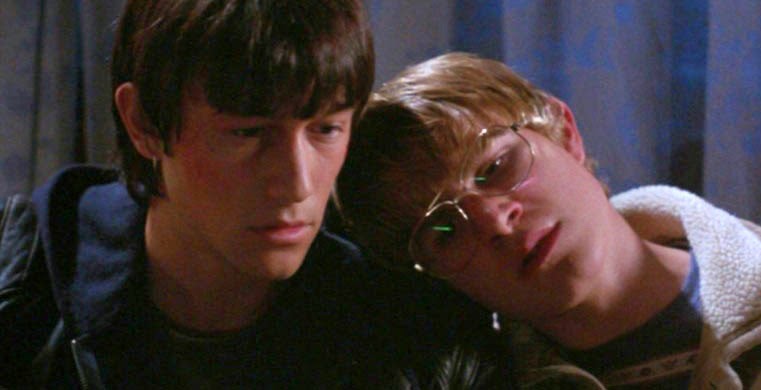
In another role as a quiet (but far more vulnerable) character, Corbet brought real depth as the co-star of Greg Araki’s masterwork, Mysterious Skin. Many remember this as Joseph Gordon Levitt’s time to shine, but Corbet’s character arc of a boy who believes he’s being abducted by aliens only to find out that this is a fantasy concocted by his subconscious to deal with the trauma of being molested….that was an incredibly effective performance.

Corbet also appears in Melancholia, another quiet role that gets very little attention. He was the star of Antonio Campos’ Simon Killer, a fitting collaboration given Campos’ reputation for creating slow, brooding mood pieces in which the protagonists show little outward emotion.
So basically, this guy has a reputation for picking slow, polarizing movies, and injecting them with depth you won’t normally find in the bombastic landscape of mainstream cinema. While not all of the films he’s appeared in were home runs, his performances in them were always of note, but rarely drew attention to themselves. This is probably why you may be hearing his name for the first time.

Another man who loves to hang out in the background for decades at a time, the score comes to us from Scott Walker. Originally the founding member of a trio called The Walker Brothers that saw near Beatle-like success in England but failed to invade, Scott Walker quickly left the band in favor of pursuing a solo career just a little further from the limelight. He rapidly released four fantastic albums that superimposed Walker’s dark-side-of-the-crooner voice over lavish and dynamic string pieces, and reached what felt like the pinnacle of what we now know as Baroque pop with the descriptively-named Scott 4 in 1969.

After making the fatal mistake of steering his career in the direction of easy listening and pop country, Walker disappeared from the public consciousness sometime in the early 70s, becoming something of an enigma. In 1995, Walker made the most jarring comeback ever after releasing a trio of albums (Tilt, The Drift, and Bish Bosch) from 1995 to 2012. These three albums are somewhere between compellingly incoherent and absolutely fucking terrifying, and it’s one of the strangest musical reinventions in recent history. Just think about what has to happen to make someone comparable to alternate-reality Paul McCartney retreat for 30 years at the height of his career and emerge with a song like this:
Thanks to Walker’s involvement, the score for Vox Lux is fairly strange and dynamic, and while his compositions hover in the background, their presence can be felt throughout…unless the music of our next notorious introvert is stabbing us in the face with its pop-ness.

The soundtrack (which plays a vital role in the plot of the film) was written by Sia, a musician who used to deliberately hide her face, and has become notorious for this. Of course, this is the information age, so photos of her real face are now just a Google search away, but that fear of the limelight (or use of a very intentional marketing strategy, depending on your perspective) is what kept the press intrigued. Philosophically, Sia is in good company.

While Natalie Portman’s face is plastered all over the promotional material for this movie, let it be known that she’s only in 50% of it. For the first half, the quiet Raffey Cassidy plays the main character, Celeste. You might remember Cassidy from her role as young Snow White, her appearance in Dark Shadows, or as the female lead of failed Disney-ride-hype vehicle Tomorrowland. Hopefully you don’t, as Cassidy has more recently done the right thing and lifted her middle finger high in the air in the general direction of Disney, choosing roles in more interesting films such as Yorgos Lanthimos’ The Killing of a Sacred Deer.
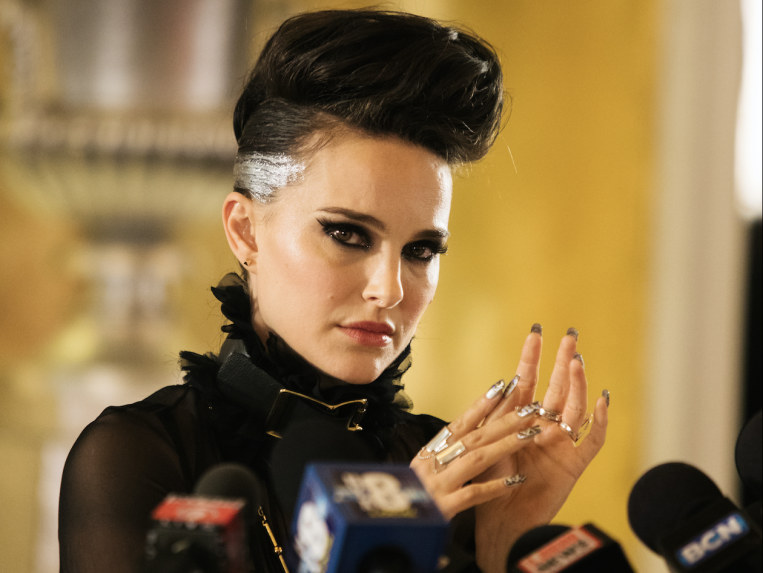
By far the brightest, loudest aspect of Vox Lux is Natalie Portman, as is to be expected. However, let me be abundantly clear: even though Vox Lux involves ballet, music, Natalie Portman, mental illness, and a host of other arbitrary connections one could make, the film and Portman’s performance is not even remotely similar to Black Swan. In fact, it has far more in common with a much-talked-about feature film released this year – A Star is Born.
From here on out, there will be light spoilers. I’m completely serious when I say “going in cold is best,” and that’s why I’m dancing around the film’s plot synopsis as much as possible before prompting you to tune out. I only plan on spoiling events that either feel inevitable to the course of the film, or occur in the first five minutes. Fair warning.
What no one told you about Vox Lux is that it begins with a school shooting. It’s a really shocking sequence too, made even more shocking by the misleading advertising of the film. I have to say, it feels less like a bait-and-switch, and more like a misdirection or a grand statement about how we need to adjust our expectations of what is to follow.
The rest of the film could easily be summarized in A Star is Born equivalencies, as it focuses on Celeste’s rise to fame, and her ever-evolving relationships with those who helped make her famous. For the first half of the film, Celeste is a shy, introverted girl just trying to deal with a tragedy that inadvertently leads to international stardom, and the progression of her character is really, really compelling. The second half of the film demonstrates the impact of the trajectory of her career on her mental health and the crumbling relationships she has with those around her.

One of the movie’s greatest strengths is Corbet’s ability to link the two actresses’ seemingly disparate personalities in a cohesive way. The second half of the film sees Portman screaming at strangers and having total meltdowns, but knowing where Celeste has come from, it all feels plausible and almost a little inevitable. Celeste chooses to absolutely reject the pity that could have afforded her the space to emotionally recover from her trauma. Her alternative is to dive head-first into her work, as many artists do, deeply denying that trauma until it surfaces in her personal life in very unpleasant ways.
Celeste’s approach to music, while successful, is ultimately her downfall. As she grows older, her lyricism and style become increasingly upbeat, stating that she wishes to create music that makes people forget their troubles. As a culture, we’re very used to stories about rock stars like Kurt Cobain, who wore his depression on his sleeve before allegedly taking his own life, or writers like Charles Bukowski, stewing in their alcoholic depression while churning out one book after another, expressing disdain for everyone and everything around them. Artists such as these sought a therapeutic element in their approach to art, with varying degrees of success. Celeste rejects this perspective, and wants to be seen as a strong woman who overcame a terrible tragedy. To a degree, the film seems to argue that this therapeutic element that’s absent from her work should not be seen as an indicator of the quality of one’s music, as is sometimes believed in the dangerous battlefield of pop-psychology. In the expression of one’s true feelings through art, we may need to consider that the artist is the one who benefits most of all.
Vox Lux even goes as far as to draw Faustian comparisons, implying that Celeste’s success actually makes her feel entitled to her own misery. It’s an interesting lens through which to view the nature of chaotic relationships often associated with certain personality disorders and PTSD, especially in a scenario where the main character is so afraid of the truth, and so powerful and famous, that no one can get close enough to diagnose her, or even offer help.
I’m sure that loving Vox Lux is going to be controversial. It’s a relatively slow film (although not Childhood of a Leader slow), and its star grows to be rather obnoxious, although not without a proper introduction as to why she behaves the way she does. In these ways, it’s going to be a hard sit for some. Also, it totally looks like Black Swan 2.
Regardless, I have no doubt that I’ll have to revisit Vox Lux at least a few times this year. It’s the most compelling film I’ve seen in 2019 so far, and hopefully a good omen of movies to come.
9.5/10